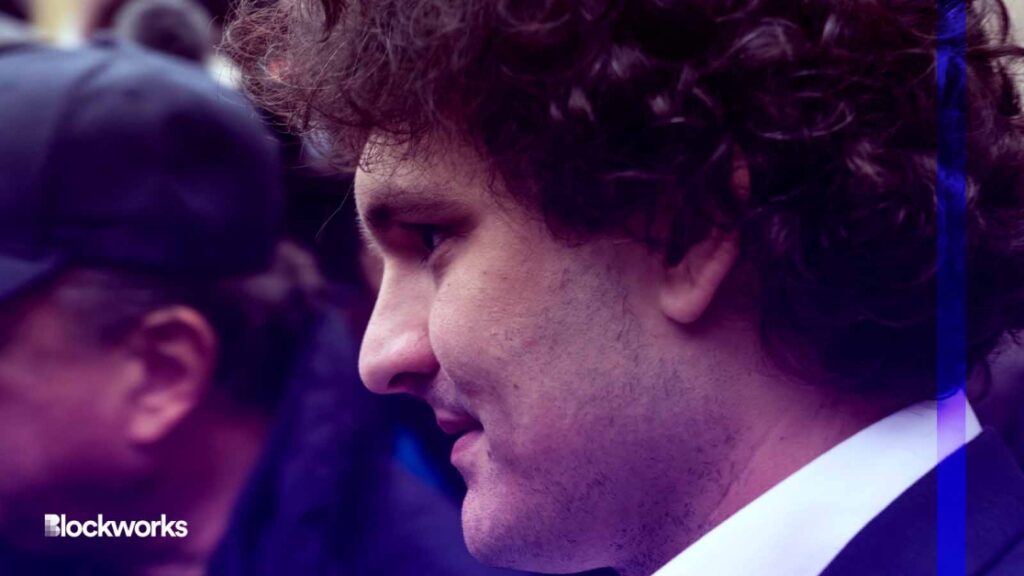A BlackRock BTC ETF Would Not Be Possible Without Bitcoin Miners

All eyes are on BlackRock.
After last year’s FTX carnage and other high profile episodes, the crypto industry is pinning its hopes on legacy funding from the long-awaited bitcoin spot ETF.
In addition to BlackRock, Fidelity and Ark Investments have applied for Bitcoin spot ETFs, paving the way for institutional capital to flow into the digital asset. Crypto exchanges like Coinbase (which will be BlackRock’s monitoring-sharing partner for the ETF) could run afoul of the SEC, but Wall Street routinely works with the agency to enforce these financial products.
While there’s no guarantee we’ll see a bitcoin spot ETF anytime soon — even BlackRock isn’t immune to SEC blockades, and its monitoring partner remains under investigation — it’s becoming increasingly likely, especially given pressure from several Companies concurrent with the momentum of Ripple Labs’ partially successful lawsuit.
The launch of a spot ETF would be a milestone for crypto and is made possible by the miners who have ensured the integrity of the Bitcoin network. From early test validations following the release of the Bitcoin whitepaper to the establishment of entire operations across the United States, Asia and Europe, the past decade has been a fascinating one for mining, and miners are once again at a crucial inflection point in shaping the Bitcoin market industry as stakeholders.
In the years leading up to the recent spate of spot filings, publicly traded miners were how institutional investors participated in bitcoin. Due to the lack of regulatory clarity for digital assets, investors turned to traditional financial instruments with equity offerings and compliance requirements, which also eased the burden of self-custody. While several other low-maintenance options for exposure to Bitcoin existed, including buying Microstrategy stocks or the Grayscale Futures ETF, miners have always been closer to the core product.
The inevitable spot ETF backed by a major financial institution like BlackRock or Fidelity is bittersweet. SEC approval of any of these ETFs would signal a regulatory green light while giving investors direct exposure to Bitcoin – it would likely see the price of the underlying asset surge, which miners (i.e. everyone involved) has seen significant gains in this decade Having built up positions makes money).
However, a spot bitcoin ETF also raises the uncomfortable prospect of capital outflows from mining stocks into Wall Street financial products, where banks are entering a more favorable regulatory environment and benefit hugely from the operating expense ratio (OER) fees built into the ETFs benefit. Meanwhile, as I highlighted in an OpEd this spring, miners will face a lower-margin environment as next year’s “halving” is expected to reduce the amount of minable Bitcoin by 50%.
There is a certain irony that miners are building the world’s first decentralized currency system - taking all the risk for over a decade while facing hostile government scrutiny and attacks from lawmakers – and then doing it at last minute left to Wall Street to help.
However, miners have always been aware of the timeline surrounding minable Bitcoin as first laid out in Satoshi Nakomoto’s white paper. The beauty is that we’ve created a playbook to connect emerging technology, institutional investment, and alternative energy sources while providing economic opportunity to communities that embrace it. While Bitcoin’s “Proof of Work” system may seem limiting at first glance, miners have used it as the basis for our own decentralized network with multi-jurisdictional presences that instantly adapt to regulatory tailwinds and technological advances.
A bitcoin spot ETF validates the validators. Its appearance would be a sign that securing the network has always been of global importance and that it will play an even greater role as promising new technologies find their place in the global economy. As Wall Street and regulators debate the specifics of a spot Bitcoin ETF, miners are developing profitable business models using Ethereum and artificial intelligence, already making the ETF debate seem outdated. In another article earlier this year, I mentioned how our company, Bit Digital, has developed an Ethereum “flywheel” model, where mined bitcoins can be converted into Ethereum and then used for rewards.
Mining infrastructure such as alternative energy sources, cooling systems and computer systems are also used to process machine learning workloads. Those who would call this a “pivot” misunderstand the fluidity of mining and how the sector has grown beyond Bitcoin to offer investors access to Ethereum and AI while also bringing new technologies that require energy production into to integrate a sustainable model. Again, miners are innovating, capitalizing on the promise of new markets and technology while Wall Street is catching up years later.
A spot bitcoin ETF heralds a triumph for the network’s guardians. Our full power is only just being recognized.
The views of the author are his own and do not necessarily reflect the views of his company.





